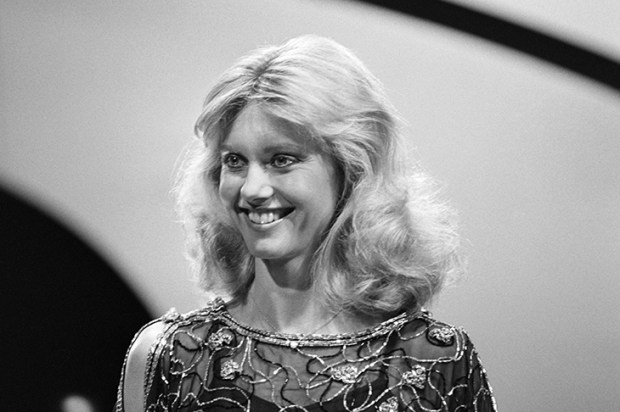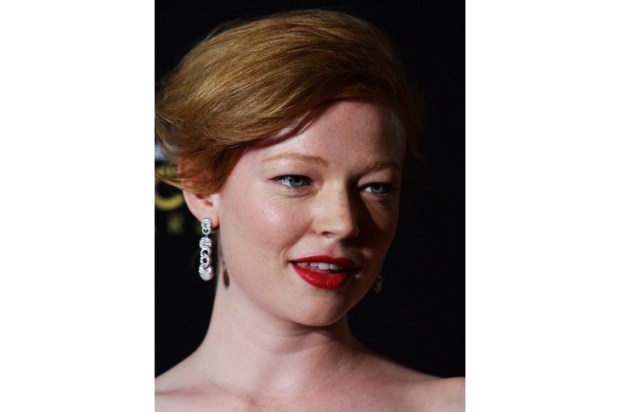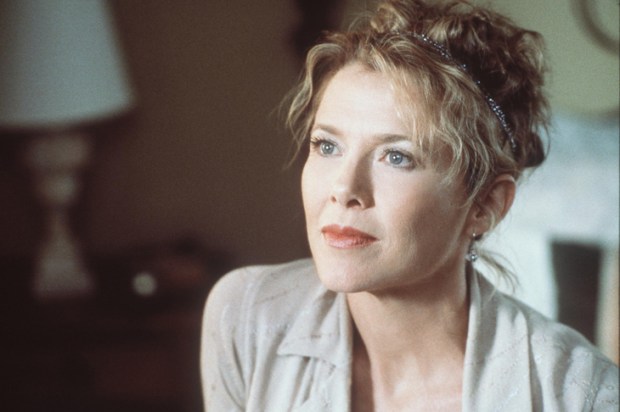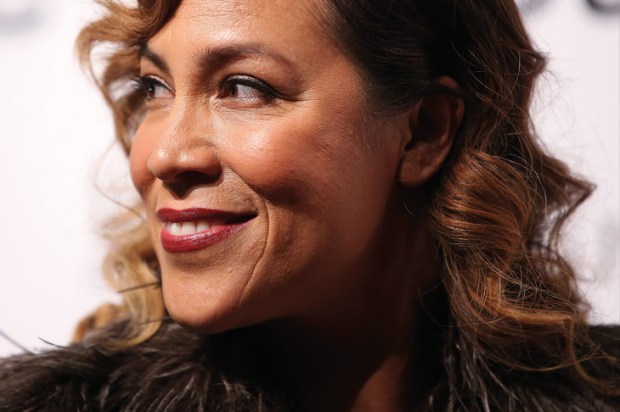What a strange thing popular culture is. Back in the 1970s a lot of people might have affected to despise Abba but when it comes to this revival of Mamma Mia! The Musical at Melbourne’s legendary theatre the Princess they’re singing along and tapping their feet. This is a young zestful production of a show we know like the back of our hands but it’s remarkable how much it can be an active exhilaration and not just a bit of appliqué nostalgia. It helps that the performances are so good and so effortlessly high energy. Elise McCann banishes all memories of Meryl Streep and Jordan Tomljenovic makes the language of Broadway dance look like the greatest thing on earth. He succeeded in making an easygoing no-suprises-here first night audience gape at what a whirlwind of choreographic brilliance he could embody. The whole of the old haunted theatre – where the ghost of Federici is said to stalk, where June Bronhill did The Sound of Music in the early Sixties – went stock still with that weird uncanny alertness that comes when an audience witnesses an exhibition of skill that seems (just for a moment) to defy belief. But this is a supersaturated fun show and the twenty-two Abba songs that adorn it with their inordinate tunefulness come across as jewels from a lost age of innocence. By the evening’s end the whole audience – much of it refreshingly young – was tapping their feet, then actually dancing so what might have been a grey-hair’s remembrance of things past actually turned into something like a party.
In a wholly different area it’s fascinating to report that the chap who stood for the Tory leadership against Boris Johnson, Rory Stewart, has written a book you’ll find difficult to put down. In Politics on the Edge Stewart summons up the casual if self-regarding charm of that Wildean and improbable politician Boris with a kind of intensity of focus that we associate with the great masters of observation and evocation like Boswell or Gore Vidal (or, if you like, some of the great New Yorker profiles by Kenneth Tynan, like his one of Ralph Richardson – ‘I was dreaming of the place we come from before we’re born: it was rather like Mexico’). No one who looks at Politics on the Edge will be surprised to hear that Stewart’s podcast with Alastair Campbell, The Rest is Politics, is one of the most popular in the world and that their recent conversation at the Royal Albert Hall was sold out in minutes.
Alastair Campbell is a radically different figure from Rory Stewart which must be part of the charm of the dialectic of the magic they weave together. Apart from anything else he is unashamedly depressive and will say disarmingly that the only thing that restrains him in nihilistic moments is the fear of hurting someone else. In any case he was asked the other day by the Times to name a few of his favourite things, culture wise. He said a bit surprisingly that his favourite book was Flaubert’s Madame Bovary and that he had discovered that he could read it in French. There’s something charming and refreshing that this great master of the web and wiliness of words – ‘the people’s princess’ and all the rest of it – should be in thrall to one of the small group of novels the art of fiction takes its bearings from.
It was also very cheering that the book Alastair Campbell wishes he’d written was Robert Hughes’ The Fatal Shore. No other work of Australian non-fiction has the imaginative largesse to compete with this magnificent account of the convict story. Bernard Smith, the sometime enemy of his fellow art critic (and who had himself written a very formidable history) compared it to the great French historian Michelet and Manning Clark said it showed that history could be the greatest show on earth. The story goes that when Bob had his ghastly car accident and he lay, as he thought, perhaps dying, that old Riverview boy – who once held off a girl for half an hour as a mid-teen by reciting the mass in Latin – found himself praying, ‘Please God, let me write a masterpiece.’ Well, with The Fatal Shore he already had and it’s to Alastair Campbell’s credit that he realises that Hughes’ convict flog opera is one of the supreme works of non-fiction. Campbell’s favourite film is the Diana Ross film about Billie Holiday – another interesting choice but not one I know.
It’s good to see that the British Film Festival – which opens at the start of November with One Life, a film by James Hawes and with a grand cast including Anthony Hopkins, Johnny Flynn, Lena Olin and Romola Garai among starry others – should include Ken Loach’s The Old Oak. It seems like a lifetime ago that Loach made Kes and that we went to his films utterly confident that we lived in the midst of makers of masterpieces. It wasn’t an unfounded belief given the music of Dylan or every kind of extraordinary film from Bergman and Fellini – and Visconti and Antonioni – to the British masterpieces of Loach or Terence Davies who died last week. None of which is to deny that great directors can produce turkeys. Antonioni could make films like L’Eclisse and La Notte – than which film doesn’t get much better – but he could also produce drivel like Zabriskie Point. Godard had made startling cinema – Contempt, say, with Brigitte Bardot and Fritz Lang – but how early late-Godard starts if you include in that category a film like Weekend.
Terence Davies spent a lot of time exploring his Catholic working-class childhood but then he could make a clairvoyantly reproductive film of Edith Wharton’s The House of Mirth with Gillian Anderson, staggering in the performance of her career.
Concert-watchers will note that the Australian World Orchestra are doing that stupendous piece, Mahler’s Ninth, on 22 November in Melbourne and 24 November in Sydney, but this time without a world renowned conductor like Zubin Mehta or Riccardo Muti. Music lovers however should go and see what Alexander Briger – the nephew of Sir Charles Mackerras – does with his baton in the face of this earth-shattering work.
Got something to add? Join the discussion and comment below.
Get 10 issues for just $10
Subscribe to The Spectator Australia today for the next 10 magazine issues, plus full online access, for just $10.
You might disagree with half of it, but you’ll enjoy reading all of it. Try your first month for free, then just $2 a week for the remainder of your first year.














Comments
Don't miss out
Join the conversation with other Spectator Australia readers. Subscribe to leave a comment.
SUBSCRIBEAlready a subscriber? Log in